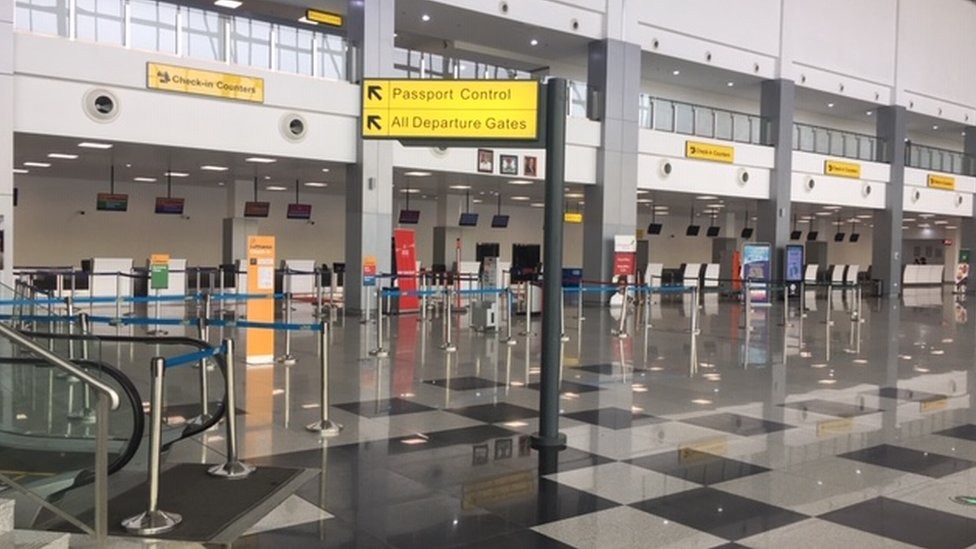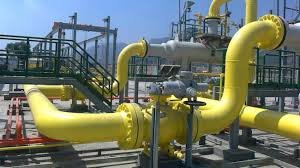Unlike the case with the advanced economies in the world, no individual or institution in Nigeria saw the dreaded COVID-19 pandemic coming. With no fore knowledge of the coming months of doom, virtually everyone was caught napping. In the United States, part of the blames and the political squabbles which characterized the power contest between the Democrats and the Republicans were anchored on claims and counter-claims that the Trump administration was briefed, but did not respond quickly enough to warnings that a deadly pandemic was on the way to wreaking havoc on the economy of the United States.
The Americans continue to decry the administration’s response saying if the Trump administration had been a little more responsive, hundreds of thousands of lives would have been saved, and the US economy, as well as the entire globe would have been spared the devastating effects of the pandemic. In the US therefore, it was a case of unheeded warnings, while in Nigeria, government, private sector and citizens were all in the dark about COVID-19. Absolutely everyone in Nigeria, from individual to businesses suffered the consequence of the absence of intelligence reports to tip off businesses and prepare them for the crisis that was to come.
One key sector, which has found itself reeling badly from the revenue losses, and the many other uncertainties, is the airline business. In August, the National Bureau of Statistics (NBS) released data, which indicated that air transport nosedived in the second quarter of 2020 by 57.38 percent. At the height of the implementation of the lockdown measures to curb the spread of the COVID-19 pandemic, the Airline Operators of Nigeria (AON) warned that the aviation sector in Nigeria was on the verge of taking losses of not less than N360 billion as a result of the impact of COVID-19.
Even so, the point must be made that the effects of the COVID-19 pandemic did not only upend and disrupt business projections in Nigeria, everything that makes life a lot more interesting was affected globally. In the United States, the airlines, tourism and hospitality business took severe pounding from the effects of the pandemic. In the week of November 23-29, Airlines for America reported data showed that United States air passenger volume was 62 percent below what it was at the same time in November 2019. The data further indicated that domestic air travel in the United States was down by 61 percent, while international travel was down by 67 percent.
In the face of these challenges, the Americans immediately began putting in place measures to mitigate the effects of the pandemic on the airline industry. In April, the United States Treasury finalized plans on how to rescue the airline industry from an imminent COVID-induced collapse. The US bailout package for the airline industry, which was a combination of grants and loans amounted to $25billion. Earlier in the year, the Trump administration reached an agreement with the airlines to prop up the industry, which was facing record losses due to the effects of the pandemic. One major consideration for the bailout of the airlines using public funds was the need to save jobs and livelihoods.
In Nigeria, the government in early November reportedly approved $4 billion as bailout package for the operators in the aviation sector. Paltry as the sum is, and given the fact that it is coming at a time the pandemic has already wreaked so much damage in the sector, some interest groups remain bent on discouraging government’s support for the sector, notwithstanding the crisis in the sector. A number of the arguments against any form of support for an industry, which has taken so much hammering from the effects of the pandemic are being dressed in a patriotic garb. The argument is that because loans were given in the past, and some of the debtors-businesses have refused to fulfill their obligations, then no support of any such should be considered for businesses, which are currently in distress due to the pandemic. All such arguments conflate the context of the past with the present realities. If the alarm bells being sounded are meant to create safeguards, and ensure better strategies are adopted to ensure funds released to airlines are efficiently utilized, that would certainly be something to learn from. However, to simply canvass that support should not be given to businesses simply because mistakes were made by decision makers in the past, is not tenable.
Importantly, the big picture all stakeholders in the airlines businesses should focus on is jobs. Like in the United States, the number of jobs to be saved in the sector was the major determinant of the decision to use public funds to save the airlines from going under. The situation in Nigeria is similar; the economy is already reeling from the number of jobs lost due to the effects of the pandemic.
Matters have equally been made worse for employees, who lost their means of livelihoods as a result of the downturn in the sector. Millions of lives have been seriously affected, and it is only sensible that government should at this critical time ensure it preserves critical sectors, which provide big jobs numbers. The cost to the economy of hundreds of thousands of direct and indirect jobs being wiped out, is better imagine. It is in the interest of the government, and by extension the wider society for public resources to be used to achieve a public-spirited goal. Realizing such an objective does not mean due diligence and proper safeguards should not be put in place.
The important thing is for everyone to come to terms with the fact that every job saved in these difficult times would have a multiplier and humanitarian effects across the economy.






















